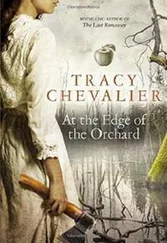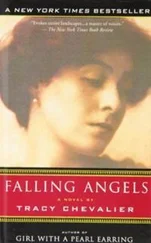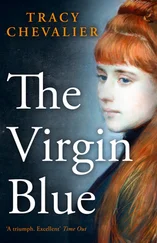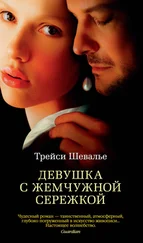Oh, God, I thought. I still have to tell him. My stomach tightened.
When they got close the woman stumbled. I stood frozen.
‘ Mon Dieu! ’ Mathilde breathed.
Sylvie clapped her hands. ‘Ella, you didn't tell us your sister was coming!’
She reached me and stopped. We studied each other: the hair, the shape of the face, the brown eyes. Then we stepped together and kissed the other's cheeks: one, two, three times.
She laughed. ‘You Tourniers always kiss three times, as if two were not enough!’
Late in the day we decided to come down from the mountain. We would have a drink at the bar, then go our separate ways: Mathilde and Sylvie to Mende, Elisabeth to her home near Alès, Monsieur Jourdain to his house around the corner from the mairie , Jean-Paul to Lisle-sur-Tarn. Only I didn't know where I was going.
Elisabeth and I walked together to the cars.
‘You will come stay with me?’ she asked. ‘Come now if you want.’
‘Soon. I have some – things to sort out. But I'll come in a few days.’
At the cars she and Mathilde looked at me expectantly. Jean-Paul looked off at the horizon.
‘Um, you go ahead,’ I said to them. ‘I'll get a lift with Jean-Paul. We'll see you there.’
‘Ella, you are coming home with us, aren't you?’ Sylvie asked anxiously. She began to pat my arm.
‘Don't worry about me, chérie .’
When the cars disappeared down the road Jean-Paul and I found ourselves on either side of his car. ‘Can we take the roof down?’ I asked.
‘ Bien sûr .’
We unhooked the clasps on each side, rolled the roof back and fastened it. When we were done, I leaned against the side of the car and rested my arms along the top ridge of the window. Jean-Paul leaned against the other side.
‘I have something to tell you,’ I said. I swallowed the lump in my throat.
‘In English, Ella.’
‘Right. OK. In English.’ I stopped again.
‘You know,’ he said, ‘I had no idea I could be so miserable about a woman. It has been almost two weeks you go away. Since then, I can't sleep, I can't play piano, I can't work. The old women tease me at the library. My friends think I am crazy. Claude and I fight over stupid things.’
‘Jean-Paul, I'm pregnant,’ I said.
He looked at me, his whole face a question. ‘But we -’ He stopped.
I thought again about lying, about how much easier it would be to lie. I knew he would see through it.
‘It's Rick's,’ I said softly. ‘I'm sorry.’
Jean-Paul took a deep breath. ‘There is nothing to be sorry about,’ he said in French. ‘You wanted to have a baby, yes?’
‘ Oui, mais -’
‘Then there is nothing to be sorry about,’ he repeated in English.
‘If it's with the wrong person, there's plenty to be sorry about.’
‘Does Rick know?’
‘Yes. I told him the other night. He wants us to move to Germany.’
Jean-Paul raised his eyebrows.
‘What do you want to do?’
‘I don't know. I have to think about what's best for the baby.’
Jean-Paul pushed himself off the car and walked to the other side of the road, where he stood looking out over the fields of broom and granite. He reached over, picked a stalk of broom and squeezed the bitter yellow flowers between his fingers.
‘I know,’ I whispered so he wouldn't hear me. ‘I'm sorry. It's too much, isn't it?’
When he came back to the car he looked resolute, even stoic. This is his finest hour, I thought. Unexpectedly I smiled.
Jean-Paul smiled back at me.
‘What's best for the mother is usually what's best for the baby,’ he said. ‘If you are unhappy the baby will be also.’
‘I know. But I've lost sight of what's best for me. I wish I at least knew where home was. It's not in California anymore. And Lisle – I don't think I can go back there. Not right now. Or Switzerland. Certainly not Germany.’
‘Where do you feel most comfortable?’
I looked around.
‘Here,’ I said, ‘Right here.’
Jean-Paul opened his arms very wide.
‘ Alors, tu es chez toi. Bienvenue .’
I stared up at the sky, a pale blue washed out by late September sun. The Tarn was still warm; I lay on my back, arms stroking out from my sides, breasts flattened, hair floating in the river like leaves around my face. I looked down: my belly was just beginning to push above the water. I cupped the mound with my hands.
There was a rustling of paper from the bank.
‘What happened to Isabelle?’
‘I don't know. Sometimes I think she left Moutier and returned here to the Cévennes. She found her shepherd and had her baby, and lived happily ever after. She even went back to being Catholic so she could worship the Virgin.’
‘Happy ending.’
‘Yes. But you know, I don't think that's what really happened. More often I think she died starving in a ditch somewhere, fleeing from the Tourniers, a baby dead in her womb, forgotten, her grave unmarked.’
There was silence.
‘But you know the worst fate, even worse than that, and yet the most likely?’
‘What can be worse than that?’
‘She lived with it. She stayed in Moutier and lived with her daughter's body under the hearth for the rest of her life.’
Isabelle kneels at the crossroads. She has three choices: she can go forward, she can go back, or she can remain where she is.
– Help me, Holy Mother, she prays. Help me to choose.
A blue light surrounds her, giving her solace for the briefest moment .
I sat up abruptly, crouching on the long smooth rock of the river bed, my breasts regaining their roundness. The baby had woken and begun to wail like a kitten. Elisabeth lifted him from his blanket on the river bank and guided his mouth to her breast.
‘Has Jean-Paul read this?’ She patted the manuscript next to her.
‘Not yet. He will this weekend. It's his opinion I'm the most nervous about.’
‘Why?’
‘It's the most important to me. He has definite opinions about history. He'll be very critical of my approach.’
Elisabeth shrugged. ‘So? It's your history, after all. Our history.’
‘Yes.’
‘Now, what about the painter you were telling me about? Nicolas Tournier.’
‘The red fish, you mean.’
‘What?’
‘Nothing. He has a place, no matter what Jean-Paul thinks.’
Jacob reaches the crossroads and finds his mother on her knees, bathed in blue. She does not see him and he watches her for a moment, the blue reflected in his eyes. Then he looks around and takes the road leading west .
I would like to thank the following people (in alphabetical order, that great leveller) for their help: Juliette Dickstein; Jonathan Drori; Susan Elderkin; Jonny Geller; James Greene; Kate Jones; my cousin Jean Kleiber, who first told me about chimneyless farms and other things Swiss; Lesley Levene; Madame Christine Martinez of Florac, who without knowing it gave me a crash course in French village life; and Vicky Singer.
Most useful were Montaillou and The Peasants of Languedoc by Emmanuel Le Roy Ladurie, The Return of Martin Guerre and Society and Culture in Early Modern France by Natalie Zemon Davis, Protestants du Midi, 1559-1598 , by Janine Garrisson, and Moutier à travers les âges by Ph. Pierrehumbert.
Most of the places in the book may exist, but none of the people does.
The 16th-century Protestant Reformation originated with Martin Luther in Germany. One of his associates, John Calvin, moved to Geneva, where he trained preachers in his beliefs, based on a pious, disciplined life as well as the direct worship of God without the need for a priest as intermediary. These preachers fanned out across France, spreading the ‘Truth’, as Calvinist teachings were known. They quickly converted many in the cities and among the French nobility.
Читать дальше
Конец ознакомительного отрывка
Купить книгу
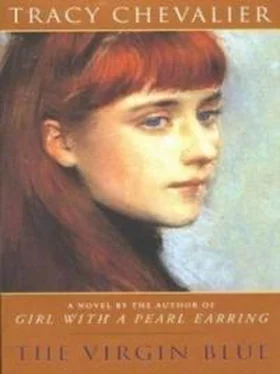
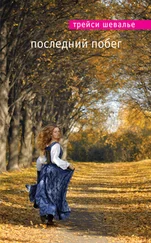
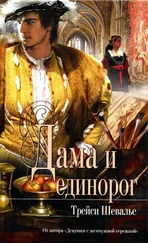
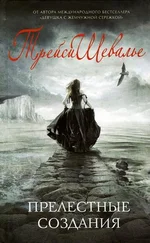
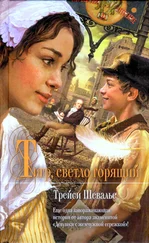
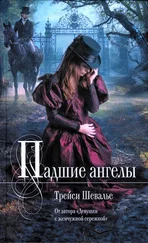
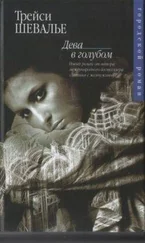
![Трейси Шевалье - Тонкая нить [Литрес]](/books/386177/trejsi-shevale-tonkaya-nit-litres-thumb.webp)
